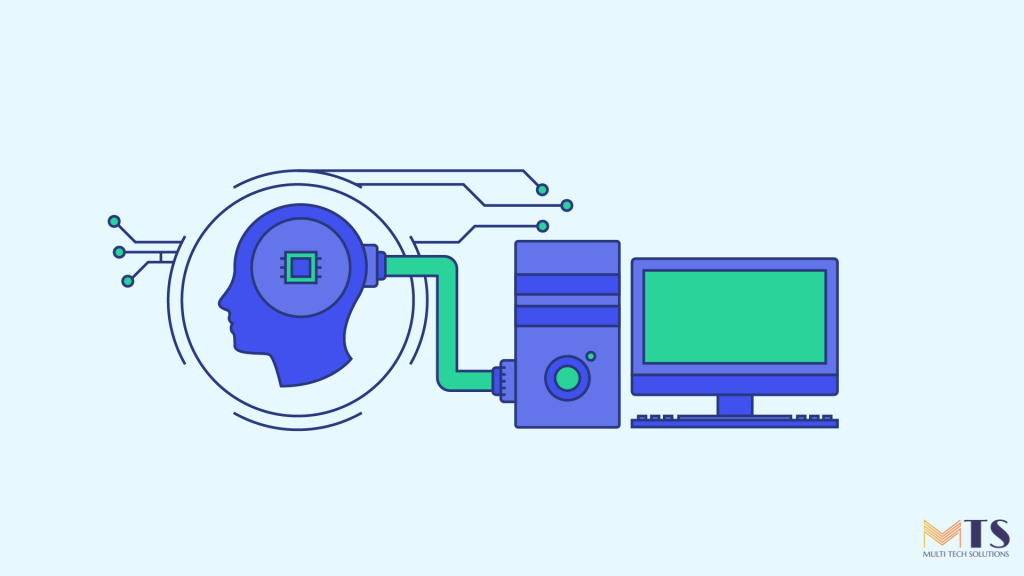
In the digital age, businesses are constantly seeking innovative technologies to stay competitive and streamline their operations. One such game-changing technology is machine learning. With its ability to process vast amounts of data and make accurate predictions, machine learning has revolutionized various industries. In this blog, we will delve into the applications and benefits of machine learning in the business landscape. From enhancing customer experiences to optimizing operations, machine learning has the power to reshape the future of organizations.
1. Improved Customer Experience
Machine learning has the potential to transform how businesses interact with their customers, leading to improved satisfaction and loyalty.
– Personalized Recommendations: By analyzing customer data, machine learning algorithms can provide personalized product recommendations, increasing the likelihood of conversions and repeat purchases.
– Sentiment Analysis: Through natural language processing, businesses can gauge customer sentiments from reviews and social media, allowing them to address concerns promptly and improve overall brand perception.
– Chatbots and Virtual Assistants: Machine learning-powered chatbots can offer instant support to customers, providing them with quick answers and assistance, enhancing their experience.
2. Enhanced Data Analysis
Businesses handle vast amounts of data daily, making it challenging to extract valuable insights. Machine learning aids in this process by analyzing data effectively and efficiently.
– Predictive Analytics: Machine learning algorithms can forecast future trends and behaviors based on historical data, empowering businesses to make proactive decisions and stay ahead of the competition.
– Fraud Detection: In industries like finance and e-commerce, machine learning helps identify suspicious activities and potential fraud patterns, ensuring enhanced security and trust for customers.
– Market Research: By analyzing market trends and customer behavior, machine learning enables businesses to identify new opportunities, optimize pricing strategies, and develop competitive marketing campaigns.
3. Streamlined Operations
Machine learning can optimize various business processes, leading to increased efficiency and cost-effectiveness.
– Supply Chain Management: Predictive analytics helps businesses optimize inventory levels, reduce transportation costs, and minimize delays, ensuring a smooth and efficient supply chain.
– Predictive Maintenance: Machine learning can anticipate equipment failures, enabling proactive maintenance and reducing downtime, which is particularly beneficial in manufacturing and industrial sectors.
– Resource Allocation: By analyzing historical data, businesses can optimize resource allocation, ensuring that the right resources are allocated to the right tasks, leading to increased productivity.
4. Smarter Decision-Making
Machine learning assists businesses in making data-driven decisions, enabling them to stay agile and respond effectively to changing market dynamics.
– Sales Forecasting: By analyzing historical sales data and market trends, machine learning algorithms can provide accurate sales forecasts, aiding businesses in planning inventory and resources effectively.
– Risk Assessment: In finance and insurance industries, machine learning algorithms can evaluate risks associated with loans, investments, or insurance policies, assisting in making informed decisions.
– A/B Testing: Machine learning allows businesses to conduct efficient A/B tests, helping them identify the most effective strategies for marketing campaigns and website optimization.
5. Automation of Repetitive Tasks
Machine learning enables businesses to automate mundane and repetitive tasks, freeing up human resources for more creative and strategic endeavors.
– Data Entry and Cleaning: Machine learning algorithms can automate data entry and cleaning processes, reducing errors and improving data quality.
– Customer Support: Chatbots powered by machine learning can handle routine customer inquiries and support, reducing response times and enhancing customer satisfaction.
– Email Classification: Machine learning can automatically categorize and prioritize incoming emails, ensuring timely responses and efficient email management.
In conclusion, machine learning has emerged as a powerful force in the business world, bringing a multitude of applications and benefits. From enhancing customer experiences to streamlining operations and enabling data-driven decision-making, its impact is profound. Embracing machine learning can give businesses a competitive edge and pave the way for success in the digital era. As organizations continue to harness the potential of machine learning, we can expect further innovations and improvements, revolutionizing the business landscape as we know it.




